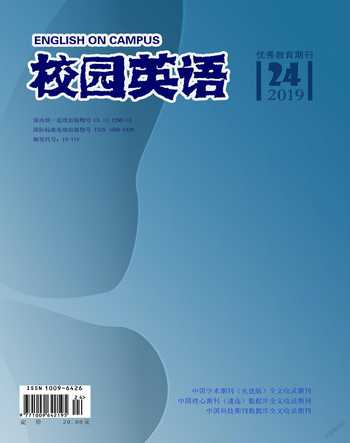China’s land collective ownership of realistic thinking prospects
【Abstract】China’s rural collective land ownership policy since the founding of the land reform has always been around the “ownership and management” development changes. In the context of agricultural modernization and the integrated development of urban and rural areas, it is necessary to actively explore the forms of collective land ownership, accelerate the confirmation of land ownership and the separation of “ownership, contract and management rights”, maintain agricultural diversity and improve agricultural productivity.
【key words】 rural land collective ownership; Farmers’ land property rights; Contract right; Rural land circulation
【作者簡介】闪月(1991-),女,回族,河南洛阳人,西南交通大学马克思主义学院,博士在读,研究方向:马克思主义中国化。
In China’s agricultural modernization, the form of collective land ownership is still very prominent. In the context of improving agricultural productivity and ensuring food security, how to treat the change of agricultural collective land ownership in China is a very valuable research topic for carrying out large-scale land management and promoting agricultural modernization.
1. Implementing the confirmation of the right to farm land contracting and management to realize agricultural scale operation
The relationship between rural collective and peasant household property right is not clear, which leads to the unclear ownership, moreover, the “virtual” subject of property rights often causes the real subject of property rights——farmers to be infringed by some so-called “agents”, and even the “principal-agent” relationship to be inverted, as well as the unfair treatment of the state to farmers in expropriation and compensation of agricultural land. Rural land collective ownership of the joint-stock reform came into being.
The decision adopted at the third plenary session of the 18th central committee of the communist party of China in November 2013 clearly stipulates that “farmers should be given the right to own shares of collective assets, earnings, paid exit, mortgage, guarantee and inheritance”, which is a new statement in the context of the continuous advancement of agricultural modernization. In this way, while giving play to the basic survival guarantee of farmers, the land increases its operating benefits. The efficiency and free value of collective assets enable farmers to obtain more property income.
2. Maintain agricultural diversity and realize sustainable agricultural development
There is no fixed model for ecological civilization, and agricultural modernization should also protect agricultural diversity to promote the transformation from standardized agriculture to multi-functional agriculture. Professor wen tiejun provided us with the idea of developing comprehensive agricultural associations according to local conditions, so as to carry out the systematization and institutional innovation in rural areas and improve the rural social organization of small-scale peasant economic structure. The comprehensive agricultural association is a rural cooperative organization established in accordance with ecological civilization, which reflects the modern development direction of the diversification of rural land property rights and ensures the income of farmers. It also avoids the capital to the countryside for the benefit of industrial and commercial capital to grab the benefits of agricultural industrialization, ensuring food security.
Of course, only progressive system modification can help reduce the cost of the whole system reform, and the reform of rural collective land ownership form still needs a process of exploration. It is necessary for us to make unremitting efforts in the practice of agricultural modernization to rationalize the property right relationship of rural land, innovate new agricultural operation subjects and organizations, and guarantee farmers’ land income and food security.
References:
[1]Guo Xiaoming. China’s rural land system reform: demand, dilemma and development trend[J]. China’s rural economy,2011(4).
[2]Luo Biliang. Property right intensity, land transfer and protection of farmers’ rights and interests[M]. Economic science press,2013.

